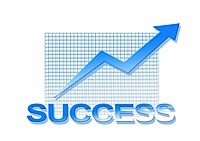
The first solar-powered aeroplane to fly day and night "represents the European dream" and should spur politicians to find pioneering solutions to reliance on fossil fuels, guests at a Green Week event heard yesterday (23 May).
Solar Impulse, which recently landed in Brussels following its first international flight, is being used to showcase renewable technology – chiefly of use to the electric car market – to policymakers during Green Week.
With a wingspan the size of a medium-sized passenger jet and weighing about as much as a family car, including its sole passenger – Swiss pilot Andre Borschberg – the plane is the largest of its weight ever to have been built.
The culmination of seven years' work, solar cells integrated into the carbon fibre wings supply four electric motors with renewable energy and charge lithium polymer batteries during the day, enabling the so-called 'Solar Impulse' aircraft to fly at night.










 The world economy seems finally to be on the mend, with global economic growth forecast at 4.2 percent this year and 4.6 percent in 2012, according to the OECD’s latest Economic Outlook.
The world economy seems finally to be on the mend, with global economic growth forecast at 4.2 percent this year and 4.6 percent in 2012, according to the OECD’s latest Economic Outlook.








